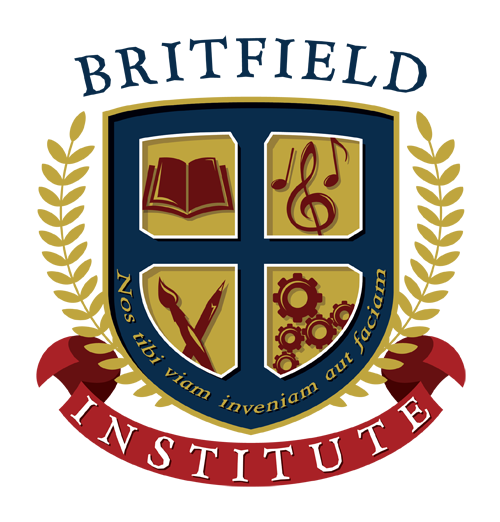Phase II
Phase II: Interactive Workshops
Our creativity programs are flexible and designed to be presented as two-hour sessions, half-day workshops, or longer, more in-depth courses. These programs are designed for classrooms, auditorium presentations, after-school programs, or weekend workshops. We employ multiple approaches depending on the school, timing, and availability of students. Any of our programs can be offered over a semester or as a summer course. We start with creativity as the main theme and implement individual and group exercises to engage the students to think creatively. The programs are visual and interactive and offer exercises for students to think, engage, and create.
Britfield Institute Programs
- Writing and Storytelling
- Entrepreneurship
- Product Development
- Marketing a Concept
- Film and Digital Media
- From Inventing to Innovation
- Business and Leadership
Example: A child shows a talent for writing. We assign a tutor/mentor for six to eight weeks to help the student craft his/her ideas into a compelling narrative, structure the storyline, develop characters, and properly complete a short story (12-15 or 20-30 pages). Next the work is edited professionally and returned to the student to either adopt or dismiss the suggestions (learning the entire time). Then the work is submitted and published on websites, online forums, and other outlets. One hundred copies are professionally printed with a dynamic front cover for the student to keep and distribute to friends and family. If the work is good enough, it may be entered in Phase III, where the student has the potential to win either first, second, or third prize (awards and scholarship money). This type of professional learning and engagement will develop children’s natural abilities and impact them for a lifetime.
- Understand the importance of storytelling
- Foundational Principles: Story and the 3-act structure
- Themes: Analyze bestselling authors and writers
- Elements: Characters, subplots, and message
- Develop an idea into a storyline: Framework
- Write a short story
- Outline a book or movie script
- Write a commercial for a product
- Choose the best ideas from each school
- Vision: Develop a concept into a company
- Brainstorming: Take ideas from good to great
- Basics: Review business fundamentals
- Examples: Discuss company case studies
- Choose a product or service
- Strategy: Tactics and long-term planning
- Marketing and Sales: From positioning to profit
- Leadership: Managing to inspire
- Assemble a mini business plan for an idea, concept, or service
- Choose the best ideas from each school
- Protocol: Idea conception/generation
- Problem/Solution: What is needed?
- Research: Market analysis
- Review/Compare: Other similar products
- Discuss pros and cons: Likes/dislikes
- Transform an idea into a practical application
- Roundtable feedback and debate
- Design, image, branding, and positioning
- Test market the product
- Choose the best ideas from each school
- Review marketing principles
- Look at branding/images
- Analyze ads and commercials
- Understand story, theme, and message
- Choose a company, product, or service
- Groups: Develop a mini marketing plan
- Positioning: Image, brand, message, price, and demographics
- Present marketing plan: debate, discuss, and feedback
- Choose the best ideas from each school
- Industry overview
- Visual storytelling
- Script and Story: 3-act structure
- Review award-winning film clips
- Production: actors, director, music, and cinematography
- Structure: Finance and distribution
- Write and create a movie trailer or commercial
- Marketing: Who’s your audience?
- Choose the best ideas from each school
- Past Examples: Case studies
- The Process: Why, what, and how?
- Vision: Idea brainstorming
- Need: Market analysis
- Structure: Development
- Team Involvement: Groups/experts
- Value Chain: Start to finish
- Polish: Testing and refining
- Choose the best ideas from each school
- Basics: Review business principles
- Models: Analyze successful companies and products
- Mission: Create a compelling vision
- Strategy: Strategic thinking
- The Message: Communication workshop
- Attributes: Discuss top leaders
- Leadership: Vision, integrity, fortitude an honesty
- Growth: Willingness to improve and learn
- Teamwork: Fostering collaboration
- Conflict: Managing and solving problems
